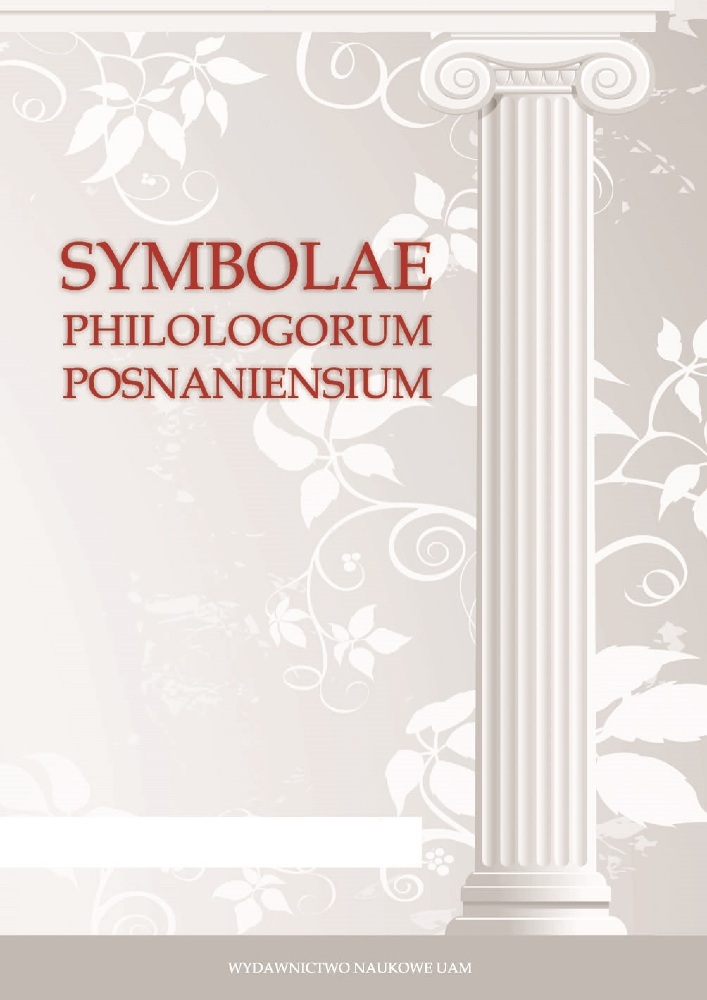Abstract
Word anus was used in a primarily negative sense to describe an old woman. Anus is usually presented as a libidinous and hideous hag who indulges in strong wine or practices black magic, mainly for erotic purposes. Though Latin literature brings as well examples of a different type of anus: goddesses assuming the shape of old women to guide or deceive the mortals and old prophetic women, inspired by the gods. Anus can be gifted with divine powers and secret knowledge. The paper traces the motif of anus as a witch or a divine woman on the basis of selected examples from the works of Horace, Ovid, Petronius, Apuleius and Silius Italicus.Literaturhinweise
Bertman 1989: S. Bertman, The Ashes and the Flame: Passion and Aging in Classical Poetry, in: T.M. Falkner, J. de Luce (eds), Old Age in Greek and Latin Literature, Albany 1989, 157–171.
Carruba 1969: R.W. Carruba, The epodes of Horace: a study in poetic arrangement. Studies in Classical Literature, Hague 1969.
Connors 1998: C. Connors, Petronius the Poet: Verse and Literary Tradition in the Satyricon, Camabridge 1998.
Gollnick 1999: J.T. Gollnick, The Religious Dreamworld of Apuleius’ Metamorphoses: Recovering a Forgotten, Ontario 1999.
Mencacci 2006: F. Mencacci, Mala aetas nulla delenimenta invenit. Donne, uomini e vecchiaia nella letteratura latina, Firenze 2006.
Ogden 2009: D. Ogden, Magic, Witchcraft and Ghosts in the Greek and Roman Worlds, Oxford 2009.
Rollin 1983: S. Rollin, Women and Witchcraft in Ancient Assyria (c. 900–600 B.C.), in: Averil Cameron, Amélie Kuhrt (eds), Images of Women in Antiquity, London 1983, 34–46.
Rosivach 1994: V. Rosivach, Anus: Some Older Women in Latin Literature, „The Classical World” 88/2 (Nov. – Dec), (1994), 107–117.
Lizenz
